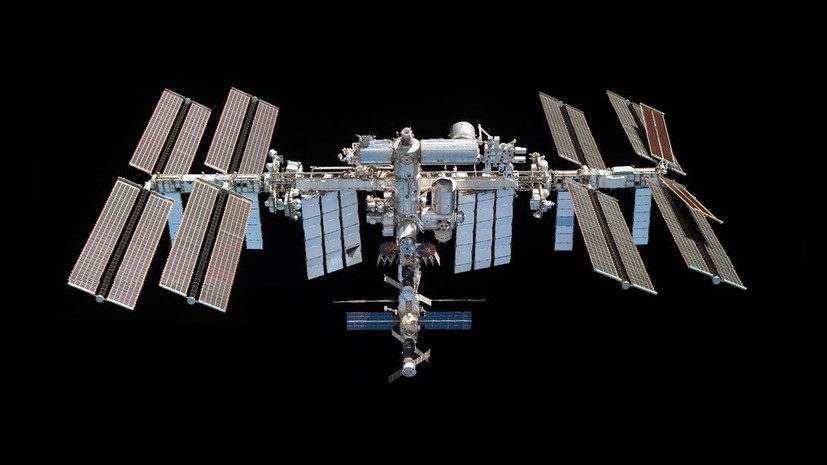The Russian Federation has decided to leave the International Space Station (ISS) project after 2024, Roscosmos CEO Yuri Borisov said during a meeting with Vladimir Putin.
The new head of the state corporation announced this, answering the president's question about the immediate prospects in the field of manned cosmonautics.
“We are working within the framework of international cooperation on the International Space Station.
Of course, we will fulfill all our obligations to our partners, but the decision to leave this station after 2024 has been made,” Borisov said.
According to him, by this time the Russian Federation will begin to form its own orbital station.
The head of Roscosmos added that this area will become the main priority of the state corporation.
“The future of Russian manned cosmonautics, first of all, should be based on a balanced and systematic scientific program, so that each flight enriches us with knowledge in the field of space,” he stressed.
At the same time, Borisov, appointed the day before as a special envoy of the President of the Russian Federation for international cooperation in the field of space, assessed the state of the rocket and space industry as a whole.
“The industry is in a difficult situation, and I see my main task, together with my colleagues, is not to drop, but to raise the bar and, first of all, provide the Russian economy with the necessary space services.
And this is navigation, communication, data transmission, meteorological, geodetic information and so on.
These are the most demanded services today, without which modern life cannot be imagined,” said the head of Roscosmos.
ROSS to replace the ISS
The question of Russia's plans to soon leave the International Space Station project has been raised before.
In April 2021, as Deputy Prime Minister of the Russian Federation, Yuri Borisov said that Moscow would warn partners about withdrawing from the project from 2025.
Then the press service of Roscosmos reported that the period of work at the station agreed with the ISS partners was 2024.
After this mark, the decision will be made based on the technical condition of the modules (which have basically reached their service life) and plans for the deployment of the Russian Orbital Service Station (ROSS).
In turn, Dmitry Rogozin, who until recently headed Roskosmos, said that by 2025 the first module of the new orbital station, which is being worked by specialists from the Energia rocket and space corporation, will be ready for launch.
In March 2022, Rogozin, in an interview with RT, said that the decision to work jointly with the Americans on the ISS was calculated until 2024.
According to him, the American side intends to stay at the station until 2030, but Moscow may not renew its end of the deal if the US remains hostile to Russia.
“I don’t know how they will then cope with the ISS after 2024,” Rogozin said.
Soon, at a meeting with State Duma deputies, he said that by 2030 "the station will fall apart", since its resource is 15 years, and the construction of the ISS began in 1998.
At the same time, he noted that he did not consider the work at the station to be effective in the current international situation.
“I do not consider work on the ISS to be effective in the current conditions.
But there is one problem - we have not yet deployed the Russian Orbital Service Station, which will be several times more efficient, ”Rogozin said.
At the end of April, he confirmed that the decision to withdraw Russia from the project had been made.
He clarified that the Russian Federation, in accordance with its obligations, will warn partners a year in advance about the end of work on the ISS.
And at the end of May, Rogozin said that Roscosmos would be engaged in the advance preparation of the scientific and energy module, originally created for the ISS, for launch as the first element of the ROSS station.
At the same time, recently the head of NASA, Bill Nelson, in an interview with the newspaper Le Journal du Dimanche, expressed the hope that cooperation with Russia on the ISS will continue until 2030.
He noted that cooperation between Moscow and Washington in this area did not stop even during the most difficult periods of the Cold War.

